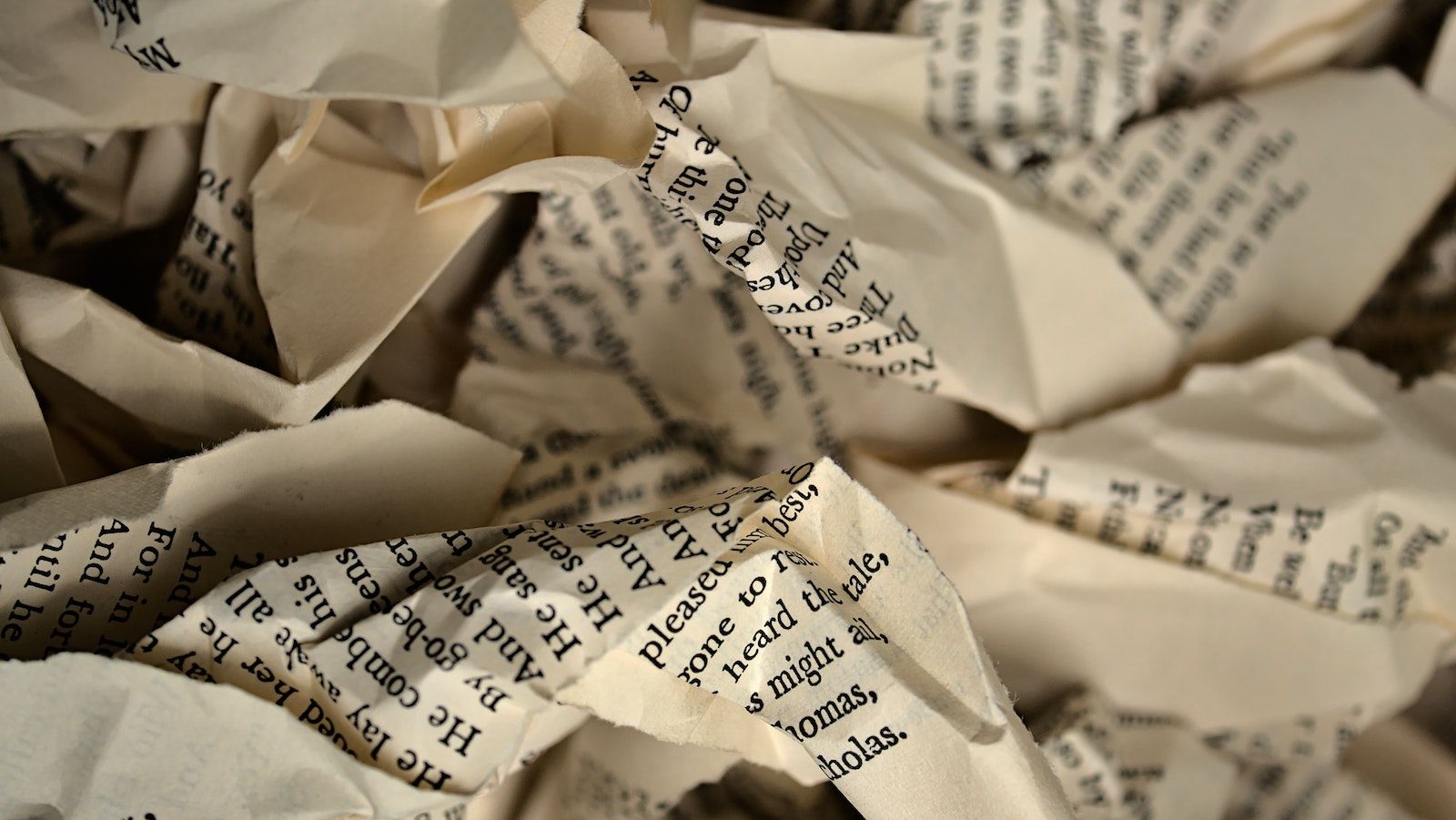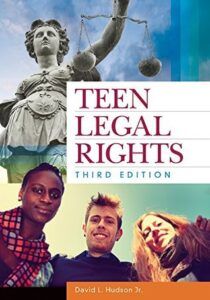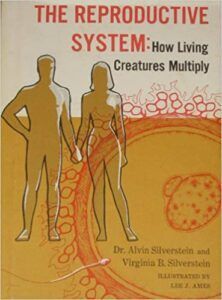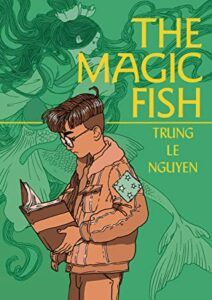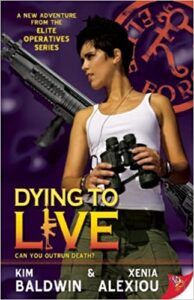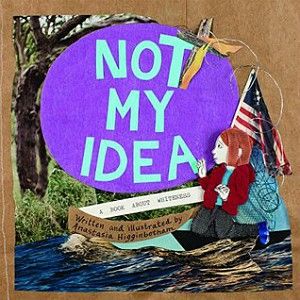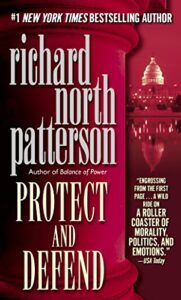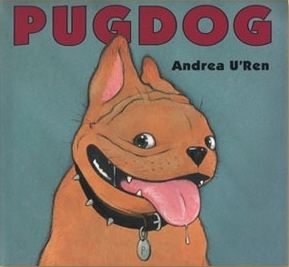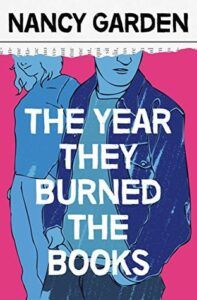All 850 Books Texas Lawmaker Matt Krause Wants to Ban: An Analysis
On October 25, Texas Republican State Representative Matt Krause sent a letter to the Texas Education Agency asking if any of the schools in the state have the books listed on a 16 page spreadsheet, as well as how much in funds schools had spent on these books.
These books are theoretically related to House Bill 3979, a so-called anti-CRT bill that bans teaching any materials that could mean “an individual should feel discomfort, guilt, anguish, or any other form of psychological distress on account of the individual’s race or sex.” Of course, the bill — which is an overreach that has confused school districts about how to follow it — doesn’t actually mention books in school libraries. It’s about curriculum. Nonetheless, with the increase of book bans and challenges recently, Krause appears to want to preemptively remove any books that could be challenged for causing “discomfort.”
Ever since I saw this list, I’ve been itching to dig into it. It’s a bizarre assortment of titles, formatted in a way that suggests it’s copy-and-pasted from library listings. (The format of “Title : subtitle” is common in library records, but not in most other places.) Where did these books in particular come from, and what’s really on it? I went through all 850 books to find out, and I found some interesting and unsettling things.
Some disclaimers first: these are rough numbers. As you might expect, looking into 850 books took a while, so these are based on a glance at the cover and description. Also, I used “trans” as an umbrella term for any books dealing with gender-nonconforming people for the sake of clear statistics.
Books On Human Rights
Perhaps the most disturbing trend I saw in this list is the challenging of books that teach students their rights. Of all the things to teach in school or for kids to have access to, this is one of the most important. To be clear, I’m not even counting books about reproductive rights or your rights as an LGBTQ person in particular. These are titles like The Legal Atlas of the United States, Teen Legal Rights, Gender Equality and Identity Rights (Foundations of Democracy), Equal Rights, We the Students: Supreme Court Cases for and About Students, and Peaceful Rights for Equal Rights.
What does it say about an elected official that he would want books about students’ legal rights taken out of school libraries? Who considers it dangerous for kids to know their rights? Withholding information from students about their rights is incredibly unethical. Whether a parent or lawmaker agrees with every right students have, they should not be able to deny students’ access to knowing about them.
Sex Education Books
Sex education books for kids and teens have been facing increased censorship this year, including classics like It’s Perfectly Normal (yep, that one’s on the list!) I was surprised by just how broad and sweeping the approach is on this list, though. Not only is every book on human sexuality disallowed, from The Baby Tree to teen books about STIs, but also anything that mentions teen pregnancy, including YA novels. About 5% of the books banned have to do with pregnancy.
Another strange consequence of this keyword approach is that a lot of books are listed that are ridiculous to think any library would currently have in stock. There are so many outdated and cringe-worthy sex ed books on this list that no teenager in 2021 would pick up. For example, The Reproductive System by Alvin Silverstein from 1971 or The Seventeen Guide To Sex and Your Body from 1996. The list also include books that are warning about the dangers of sex or that are teaching abstinence.
Along with books written for teens to understand their bodies and sexuality, this list also includes any books about abortion or pregnancy, including history books about Roe vs. Wade or debates about abortion. Again, some of these books are nonsensical to assume are being shelved in school libraries, like Whose Life?: A Balanced, Comprehensive View of Abortion from its Historical Context to the Current Debate from 1991 (current debate, indeed!) or the adult book Abortion & the Politics of Motherhood from 1985. While libraries attempt to keep all their collections up-to-date, politically charged topics like abortion will be updated the most, because information becomes out of date very quickly.
While most of these books aren’t likely to be in school libraries, I don’t want to erase how irresponsible it is to try to take sex ed books out of school. One of the most telling titles on this list is 100 Questions You’d Never Ask Your Parents: Straight Answers To Teens’ Questions About Sex, Sexuality, and Health. The parents challenging these books say that sex ed should be taught in the home, by parents, but that ignores that many households won’t do this, and also that most teens don’t feel comfortable talking to their parents about sex.
Not having this information available means that students will only know what they learn from the internet and their peers — not always reliable sources. Keeping these books out of school libraries means students are less educated and are more likely to practice risky behavior because they don’t have all the facts. Teens are going to be curious about sex whether books on sex ed are in the library or not. Withholding information makes them less safe, not more.
Any Book That Mentions LGBTQ People
Based on Bill 3979 and Krause’s letter, you might expect this list to be mainly books about racism (which might cause white student “discomfort” — never mind the discomfort students of color face dealing with racism), and they’re certainly on there. But in terms of sheer numbers, it’s LGBTQ books that make up more than half of the 850 books listed.

Neither Krause’s letter nor the bill mention LGBTQ topics, but that is most of what’s being targeted here: 13.9% of all the books challenged are trans specifically, almost as many as all the sex ed books combined. Considering how few trans books are published, this is a huge number. Krause doesn’t give any reason or justification for challenging LGBTQ books, despite them being the majority of the books listed
These books have clearly been found using some sort of keyword search, and this list includes both LGBTQ books from the 1980s and ’90s that are very unlikely to be shelved in school libraries anymore as well as books that just mention LGBTQ people. Lots of these books have queer side characters, not main characters. This keyword approach means that books like Thinking Out Loud: On the Personal, the Political, the Public and the Private, an adult book of political essays from 1994 is on this list, presumably because it mentions writing about “gays” in the description. Again, I would be very surprised if any school has this book on their shelves in the first place.
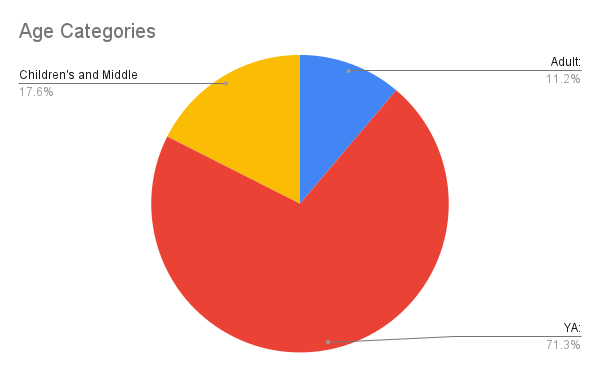
I tracked three data points for each book: fiction or nonfiction, age category, and presumed reason for the book being challenged. By far the most common combination was YA LGBTQ Fiction. This list has so many excellent, beloved queer YA books, like Aristotle and Dante Discover the Secrets of the Universe (both the English and Spanish versions). Many of them are books that aren’t coming out stories, but are SFF or adventures or mysteries that happen to have an LGBTQ character.
What justification does Matt Krause have for libraries not being able to stock these books? Why is it that only straight cis students are allowed to see themselves in stories?
Notable Titles
Mixed into bizarre listings like a collection of political essays from 2010 or a bioethics adult book from 2005 are titles that will be familiar to you. Some of them have already been making the rounds of book challenges, including LGBTQ books Lawn Boy and Gender Queer, as well as books addressing racism, like Out of Darkness and This Book is Anti-Racist.
You’ll also find lots of award-winning books, like the Pulitzer Prize-winning The Confessions of Nat Turner by William Styron and Harvey Awards Book of the Year The Magic Fish by Trung Le Nguyen.
There’s also This Is Your Time by Ruby Bridges, written by one of the first Black students to integrate into an all-white school.
The graphic novel version of The Lottery by Shirley Jackson is also included, which is an incredibly common story to teach in schools — I taught it twice in my brief stint as a high school English teacher!
The Books That Aren’t On This List
The trouble with making an 850 book list of titles to challenge is that it looks comprehensive. One would assume that it covers everything you want it to. So it’s interesting to look at the books that aren’t on this list. Probably the strangest example I bumped into is that Dying to Live (Elite Operatives #4), an adult lesbian adventure/romance series is on this list, but just volume 4. Are all the other books in the series allowed? And more importantly, are adult romance novels okay in general, but just not this one?
Of course, The Hunger Games isn’t listed, and neither is Battle Royale. After all, stories about kids killing each other doesn’t cause students “discomfort,” but a book that mentions a character’s gay uncle is apparently scarring.
Lots of books on this list are from a series. The Red Scrolls of Magic by Cassandra Clare, for instance, but none of her other books set in the same world with the same characters. Wayward Witch by Zoraida Cordova, but not the first two in the series — even though the first one has a bisexual main character and the second two have straight main characters. Nate Expectations, the third book in a series about a gay kids, but not the first two. Book 2 and 3 of the Timekeeper series, but not book 1.
There’s only one book each from Jennifer Dugan, Sophie Labelle, and Anna Marie McLemore, though they each write lots of LGBTQ books. There are Leslea Newman books, but not Heather Has Two Mommies. Each of Us a Desert, a sapphic fantasy by Mark Oshiro, but not Anger is a Gift, a gay YA book about racism and police violence.
The most egregious example for me is that The You I’ve Never Known by Ellen Hopkins is on this list, which is a book about teen pregnancy, but it’s the only book by the author included. Hopkins is well known for her books about teen drug use and other controversial topics, but none of those are here.
A list like this that attempts to be comprehensive backfires, because it implies approval for the books that aren’t on the list. With a list this slipshod, this haphazardly put together, it ends up with very strange implications.
Mistakes
I cannot overstate what a weird, jumbled mess this list is, and after considering it seriously, I can conclusively say it should not be taken seriously.
First off, this isn’t actually a list of 850 titles. The Pants Project, a middle grade LGBTQ book, and Not My Idea, an anti-racist picture book, are both on here twice. Other books are listed in both English and Spanish versions, while Qué me está pasando?, Lucas y yo, and En el bosque are listed only in Spanish — presumably the English versions are okay to stock.
The Last Man by Brian K Vaughn is listed, which isn’t a thing. The series is called Y: The Last Man, but all other series here are listed by individual volume. Dreadnought (H.I.V.E. #4) is listed twice, but I also have no idea why it’s listed at all, and I can only assume they got it confused with the trans YA novel Dreadnought (also listed).
The Weirdest Books On This List
I’ve already shared some of the mistakes, omissions, and strange inclusions (like sex ed books from the ’70s) on this list, but that’s only scratching the surface. Almost one in five of the books listed, I have no idea why they’re included. They’re average YA novels (with no LGBTQ content), as far as I can tell, or they’re nonfiction about innocuous topics. Probably the one that has me the most stumped is Inventions and Inventors by Roger Smith from 2002. What’s controversial about a book on inventions??
There is one book each from Michael Crichton (a 1993 medical thriller), James Patterson (Cradle and All), and Richard North Patterson (Protect and Defend (Kerry Kilcannon #2)). It looks like maybe two of them mention pregnancy? But it’s very strange to see just one title each from these prolific authors — and ones that aren’t likely to be on the shelves at all.
Then we’ve got three adult romances from E. Lynn Harris, which again suggests that adult romance or erotica books in general are fine, but just not these particular ones. (If you want to list every possible romance novel to prevent them being in a school library, good luck putting that together!)
And a potpourri of other random titles, including a five-book set of The Gale Encyclopedia of Medicine and Eyes on Target: Inside Stories from the Brotherhood of the U.S. Navy SEALs.
I also wanted to highlight a few titles to show just how broad these topics are. It’s not just antiracist books, it’s also titles like Quinceañera by Ilan Stavans, which is just a nonfiction book about a cultural celebration. And it’s not just trans kids’ books, it’s also Pugdog, which is about a kid realizing it’s okay for his girl dog to be slobbery and messy and not particularly “girly.” Anything that mentions gender, race, culture, or sexuality is up for grabs.
Also, while the Texas State Teacher Association said that a district asking if they had to teach two sides to the Holocaust was an “overreaction,” there is a Holocaust history book on this list: Life, Death and Sacrifice: Women and Family in the Holocaust.
Most Ironic Book On This List
While having books from the Foundations of Democracy and Stop Bullying Now! series on your book ban list is sinister, and challenging 100 Questions You’d Never Ask Your Parents with the expectation that students will learn sex ed in their homes is pretty on the nose, I have to give the irony award to the inclusion of the title The Year They Burned the Books by Nancy Garden.
Originally published in 1999, it’s about a town’s controversy over the high school’s sex ed program, and a school board member tries to get all the sex ed material, including textbooks, removed from the school. The more things change, the the more they stay the same, I suppose.
The Most Challenged Author On This List
If you’re wondering which author has the most books included on this list, it’s Julie Anne Peters, who broke barriers by publishing lesbian YA books in the early 2000s and has continued to write LGBTQ YA books since. She has nine titles on the list.
The runner up is Takako Shimura, who has eight volumes of Wandering Son, a manga series with a trans main character, on the list.
Final Stats
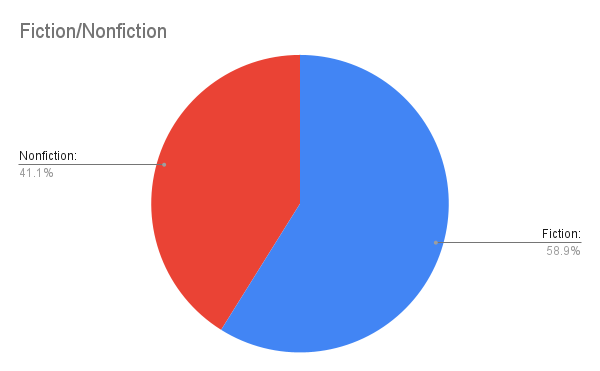
Fiction/Nonfiction Split:
- Fiction: 500 (58.89%)
- Nonfiction: 349 (41.11%)
Age Categories:
- Adult: 95 (11.19%)
- YA: 605 (71.26%)
- Children’s and Middle Grade: 149 (17.55%)
Presumed Reasons for Book Challenge:
- LGBTQ: 509 (59.95%), including Trans: 118 (13.95% of total)
- Race and Racism: 68 (8.01%)
- Sex Education: 115 (13.55%)
- Misc: 124 (14.61%), including Pregnancy: 49 (5.77%), Abortion (not Sex Ed): 43 (5.06%), and Unknown 163 (19.20%)
Conclusion
With all of this being said, clearly I have spent more time on this list than Krause (or, let’s be honest, an assistant) did. I’m disgusted that Krause expects every school district to spend time investigating whether they have any of the books on this list when it was put together so thoughtlessly. The mistakes and strange choices on this document show how little care was put into it, and how little Krause must think of school officials, that they should comb their collections according to this hastily slapped together list.
I hope that school districts refuse to bow to this bullying and censorious tactic by the Texas lawmaker. Not only is this list badly put together, with strange gaps, puzzling inclusions, and broadly applied keywords, but its goal is oppressive and dangerous. Even if this list made any sense, that wouldn’t make it better. Antiracist books, sex ed books, and LGBTQ books are exactly the kinds of topics that should be in school libraries. They’re subjects that kids and teens are curious about, and they may not be things they feel comfortably speaking to their parents about.
It’s also irresponsible to take this information out of schools. Kids need information about puberty and sex. They have questions that they deserve answers to. Also, keep in mind that age category pie graph: these are mostly YA books, not board books. Teenagers should be able to explore questions about sexuality, power, oppression, and more.
What’s more, denying kids this information puts them in danger. This house bill is supposed to prevent “discomfort,” but what about the discomfort of kids who experience racism, or who never see themselves represented in the curriculum or the books on the shelves? What about the discomfort of queer kids who see that even mentioning people like them is categorized as inappropriate or obscene or even “pornography”? Queer and trans kids face much higher risks of depression and suicide when they are in an unaccepting environment, and schools play a big role in that. Queer and trans books save lives.
So speak out against this kind of censorship and bullying behavior from school and government officials. Request your local libraries and school libraries carry anti-racist, sex ed, trans, and LGBTQ books. Run for your local school board and library board. Join the fight. Because students deserve better than this.
Also In This Story Stream
- Sexual Assault Awareness Month & Book Banning: Book Censorship News, April 5, 2024
- How Public Libraries Are Targeted Right Now—It’s Not “Just” Books: Book Censorship News, March 29, 2024
- The 2024 Lambda Literary Awards Shortlists Are Here
- You’re Wrong About These Common Myths About Book Ban: Book Censorship News, March 22, 2024
- State Anti-Book Ban Legislation Updates: Book Censorship News, March 15, 2024
- They’re Dismantling Higher Education, Too: Book Censorship News, March 8, 2024
- The Landmine of Common Sense Media: Book Censorship News, March 1, 2024
- What Updates Should Library Collection Policies Include?: Book Censorship News, February 23, 2024
- Targeting Demographic Data to Skew Reality: Book Censorship News, February 16, 2024
- Why Do We Even Read?: Book Censorship News, February 9, 2024
